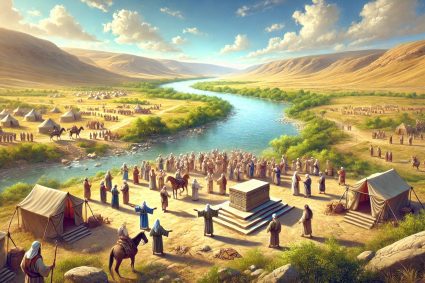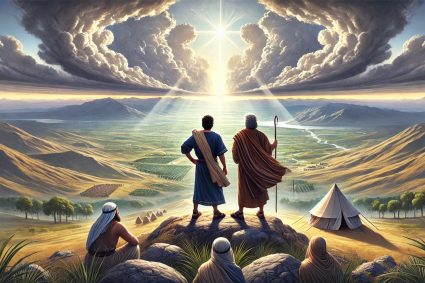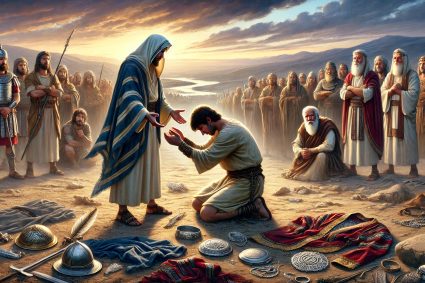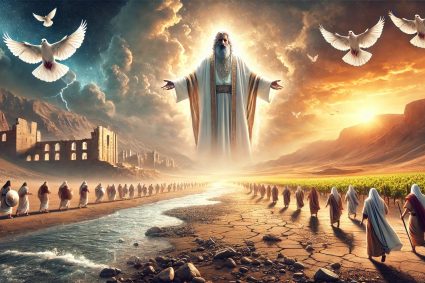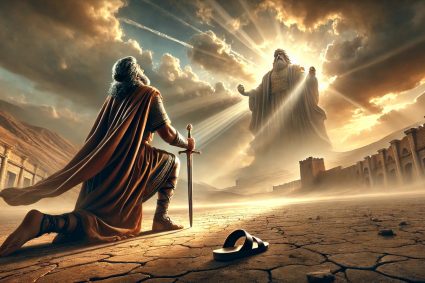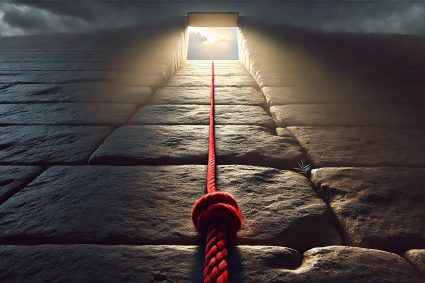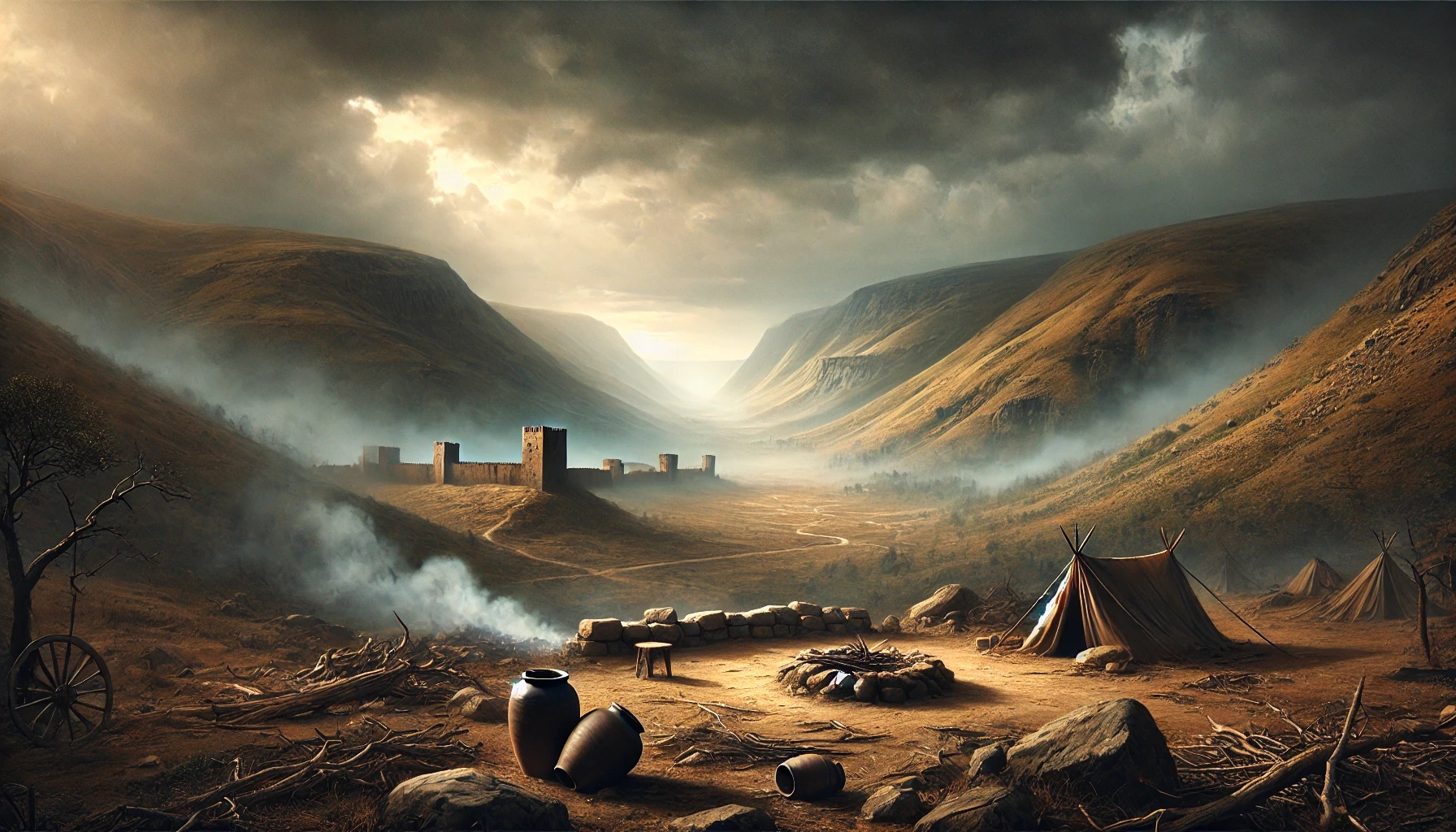
Series LESSONS OF FAITH FROM JOSHUA with Pastor Mark Finley
Lesson 7 – Supreme Loyalty: Worship in a War Zone
God first – even in the face of the greatest challenges
Introduction
Lesson 7 places us right in the middle of Israel’s critical moment: the conquest of the Promised Land. But before swords are drawn and cities are taken, worship, covenant renewal, and spiritual alignment come first. Joshua reminds the people—and us—that true victory begins in the heart, not on the battlefield. God’s presence, His Word, and the covenant are not just companions in battle, but the foundation of every spiritual advance. This lesson shows us that loyalty to God is not proven in retreat, but in the midst of conflict. Whoever puts God first will experience His guidance, even in the storm.
Content:
7.1 Covenant First
Spiritual preparation before battle: Loyalty begins with relationship
Before Israel could take Jericho, God insisted on the renewal of the covenant sign—a seemingly illogical step in enemy territory. Yet it was in that very moment that God reminded His people that true victory comes not through military strength, but through covenant faithfulness. Circumcision was not just a physical act, but a spiritual declaration: our first and best belongs to God—even in the midst of war. This event teaches us that loyalty to God must always come before strategic planning. We too are often pressured to act quickly—but the first step is to choose God’s guidance intentionally. Whoever seeks first the Kingdom of God will see how He provides the victory.
7.2 Passover
Remembrance before victory: God’s redemption as the foundation of faith
Before the battle for the Promised Land began, Joshua led the people in celebrating the Passover—an act of deep faith and obedience. The people remembered that the same God who had delivered them from Egypt was now leading them into the land. Amid strategic tension, Joshua ensured that God’s redemption remained the center. Passover was more than a ritual—it was a testimony: the victory belongs to the Lord. Even today, God calls us to pause in the middle of our busyness and remember the cross. Whoever keeps the Lamb’s sacrifice in view can face life’s “battles” with peace and confidence.
7.3 Altars of Renewal
Obedience carved in stone: Worship as a response to victory
Joshua didn’t build the altar by personal initiative, but in obedience to a clear divine command. In the midst of military success, he reminded the people that spiritual faithfulness mattered more than triumph in battle. The altar on Mount Ebal was a public declaration of covenant with God—visible, tangible, and lasting. Next to the altar, Joshua had God’s law written on stones to continually remind the people of divine promises and responsibilities. This act connects victory with responsibility, and grace with obedience. Even today, our spiritual lives need “altars”—moments, places, or rituals that remind us of our dependence on God’s Word and grace.
7.4 Written on Stones
Eternal remembrance: God’s Word as the foundation of life
The engraved stones on Mount Ebal made God’s covenant visible, permanent, and accessible to all. In a world full of forgetfulness and distraction, this monument ensured that God’s words would not be lost—neither spiritually nor literally. Positioned between the two mountains where blessings and curses were read aloud, it reminded Israel of the life-changing power of their decisions. These stones impressed daily upon the people: loyalty to God brings life—turning away brings loss. Even today, we need spiritual “stones”—firm reminders of God’s truth to guide us through the everyday. Scripture, community, and intentional remembrance help us not to lose sight of God in the busyness.
7.5 Longing for His Presence
God’s presence first: The sanctuary as the heart of life
Joshua interrupted the strategically important land distribution to establish the sanctuary at Shiloh—a powerful sign: worship comes before possession. The Tent of Meeting reminded Israel that their strength lay not in warfare but in God’s presence. The center of the people was to be the place where God’s glory dwelled—a visible center for spiritual life. We too live in a “land of opportunity,” but true life flows only from a constant connection with Jesus, our High Priest in the heavenly sanctuary. In a hectic world, God invites us to pause and realign our focus on Him. Only those who are centered on God can live victoriously and fulfilled in the long run.
7.6 Summary
Faithfulness in the tension between battle and worship
Lesson 7 shows that true loyalty to God is especially proven in the tension between challenge and decision. Before Israel took the land, circumcision, Passover, altar building, and the setting up of the sanctuary were all placed at the center—acts of worship and remembrance. These spiritual actions weren’t interruptions to the conquest plan but the decisive key to victory. Joshua’s leadership makes it clear: the covenant with God, His presence, and His Word stand above any strategic or military agenda. We too are called to make space for God first—even in the everyday struggles and battles of life. True victory doesn’t begin with the sword—but with worship.
(Visited 5 times, 1 visits today)

